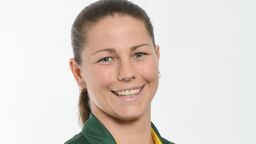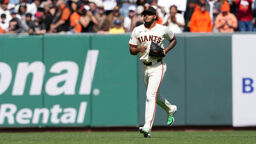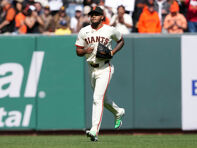The coaches of my youth—including my father, who managed my little league team for two years—were morally deficient. Their principle shortcoming, to a man, was their failure to nurture their players—or, much worse, to nurture a select few while allowing the others to languish.
"He’s soft," my father told my mother when she asked how I’d done on the first day of baseball practice.
At some level, I knew what he meant, though probably neither of us could have articulated it. Could I hit a curve? Catch a fly ball? That wasn’t what he meant. As it happens, I could do those things pretty well. But he wanted to see something else, something less tangible and more important — something I couldn’t give him.
My basketball coach in junior high school—a friend of my father’s, as it happened—mocked me openly in front of my teammates, calling me weak-wristed. Of course he could barely contain himself when I actually sprained my wrist in a game. The irony was too delicious. I like to think he might be dead now.
As an adult, I enjoy watching sports, but have little interest in playing them. They were ruined a long time ago, when I put my trust in the people described above and others like them. I’m compelled to stay in shape only because I’m gay and live in Manhattan and want to have the opportunity to mistake sex for intimacy now and then. Which leads to the recent unpleasantness.
It all started innocently enough, with a weekly cardio-boxing class at my gym in the West Village. I saw it on the schedule. It was at a good time. It was non-contact and it was cardio. Why not? I said.
And it was fun at first. We jumped rope, shadowboxed, hit the heavy bag. Nothing to get worked up about. The instructor, a small, angry woman—angry at injustice, I somehow decided—took the class very seriously. She treated us—the worthy right along with the inept, the hard with the soft—as if we were preparing for the main event at Caesar’s. Treated like a boxer, I began to feel like a boxer. A sense of competency began to take hold. After just a few classes, I began to think I’m good. I can do this.
This delusion would have been remained harmless enough had we not had a substitute instructor one week, a charming and handsome male instructor, to whom I took a rather extreme and immediate liking.
His name, or nickname, presumably, was Kid, a smiling, dreadlocked, former Golden Gloves champ and welterweight pro. He wore a Gleason’s t-shirt with the arms torn off. His smile was sunny and explosive, his body divine. He was the kind of person you have to force yourself not to stare at because once you start it’s hard to stop.
I worked harder that I had in previous classes, so as to impress. I hit the bag with barely contained rage, showed off my footwork, danced. All of it impressive.
He took notice. After class, he approached me, and me alone, asking if I’d ever considered one-on-one training, which, as it happened, he could provide.
"Me?" I said. "Really?"
He was full of compliments, confirming what I’d already begun to suspect.
"How much?" I asked.
"How much can you afford?" he said.
We met at a real boxing gym (first the now-defunct Blue Velvet, on 24th Street, and then Church Street Boxing, near City Hall). In this setting, amid some outstanding talent, the illusion of competency was more difficult, though by no means impossible, to maintain. One chooses one’s reality, regardless of the evidence. And the evidence wasn’t, in most respects, encouraging.
But no matter, really, because I was with Kid. I’m not saying I fell in love with him, but if I had it would have been understandable. There was just something about him, and I wasn’t the only one who thought so. A lot of people—respectable people—competed for his attention. He was the kind of person you just wanted to be around, even if it hurt. It hurt a lot. My self-deprecating humor kept him entertained, but he didn’t seem to care about me in the way that I cared about him. He looked at me—observed me—because it was his job to do so, and for no other reason, not really. He looked at himself most of the time, as if he, too, had trouble resisting his charms. Boxing gyms are full of mirrors, which is probably what drew him to the sport in the first place.
Aside from his obsession with self, he wasn’t very gay. In fact, his talk of women was brutish and obsessive. I didn’t want to hear about his conquests, but he spoke of little else. He didn’t seem to have a lot of interests. When I took him to lunch after a workout, he hit on the waitress while I paid the bill. On the street, he made lewd comments to women. He was, it must be said, a pig. And my heart grew fonder.
After a few sessions, we began to spar, which brought us closer. In boxing, it’s called a clinch, not a hug, and everyone needs one now and then. As my pretend opponent, he adopted an air of smirking superiority in the ring, perhaps left over from his days as a competitive fighter. I didn’t care for this side of his personality. It seemed unnecessary.
If the intention was to make me angry—a training strategy perhaps—it succeeded. I wanted to inflict serious damage. I don’t think it would be right to say that he allowed me to hit him, but I did manage to get my gloved fists on his handsome face with surprising frequency, considering his abilities. But I never quite managed to hurt him in the way that I wanted. The few times I connected solidly, he came charging forward and peppered my face with soft, inquisitive blows, just to reestablish the pecking order. Then he’d settle back down.
I never got discouraged. He wasn’t hitting me as hard as he could, but he was hitting me. And I was taking it. You have a chin, I told myself.
After three months of training and sparring, he popped the question: Did I want a fight? A real fight, against someone who would really want to hurt me. I could have said no. But it seemed like the next logical, perhaps inevitable, step. You prepare to do something and then you do it. "You should," he said. I had misgivings, but I didn’t let them cloud my thinking. I had built up a reserve of good feeling about myself as a boxer. Besides, the story that was developing—this wonderful story about me and him, and this most unlikely of pursuits—needed a suitably grand finale.
I made the mistake, perhaps, of treating it as if it were a show. It feels so nice to be getting up on stage again, I wrote in my diary. My drag cabaret act has garnered a modest, but devoted following over the years. But I hadn’t done anything in a while. I went through my mailing list and invited people I thought might come. Most somehow knew enough to stay home.
The gym’s amateur fight nights—referred to, derisively, I felt, as White-Collar Boxing—were haphazardly arranged and probably ripe for litigation. You just show up and get paired with someone of roughly the same ability and experience. This seems fine for ballroom dancing or contract bridge, but too imprecise for boxing. If me, Florence Henderson (who’s 79), James Brown (who’s dead), and that gay boxer from Puerto Rico showed up on the same night, I’d probably be matched up against the gay dude (though sexual chemistry isn’t a consideration.) And then he’d kill me.
But no need to fantasize. A cute, dangerous-looking person was right there in the warm-up area. Kid pointed him out. "That guy," he said. "Okay?"
"Sure," I said. Because what the fuck else could I say at that point? I lowered my head and threw a few spirited jabs at the mirror. And so it begins I thought.
Kid wrapped and taped my hands—something he’d usually left me to do for myself—and tied my gloves. With his thumb, he applied Vaseline to my cheeks, forehead, eyebrows, chin, shoulders, and calves. (Was I going to get punched in the calves, too?) He looked deeply into my eyes, indicating that we were in this together. I believed he wouldn’t let me do this if I weren’t ready.
The gym had been made festive for the occasion, the ring a birthday cake, ablaze in a darkened room. Before a wish has been made, or a prayer uttered.
This was intended to be an exhibition, a friendly display, but my opponent, whom I was seeing clearly now under the bright lights did not look like a friend. He was Italian in an outer-borough sort of way, shorter than me by a few inches, but about ten pounds heavier. A few years younger, for sure. He’d fought several times before, I’d been told, but was still considered a beginner. His chiseled arms, which might, under different circumstances, have inspired lustful thoughts, instead sounded a note of terror in my heart.
"Don’t trade punches with this guy," someone called out, presumably to me.
And there wasn’t a lot of trading. My opponent caught me with a right hand ten seconds in and I hit the canvas with a thud. I should’ve stayed down. I got up. The referee, who was just a guy I’d seen hanging around the gym, not a real referee, put his fingers in my face. He must have asked me if I was okay, which is what they do when something bad happens, and I must have nodded because he stepped aside, leaving me again to face with my opponent, who was advancing.
I got on my horse, as they say in the biz. This was an instinct, not a strategy. Faced with fight or flight, I fled. With this in mind, I believe I should be judged less harshly than had I made a conscious choice to retreat. Or, to put it another way, I didn’t decide to be a coward.
Toward the end of the fight, I remember I thought it would be smart to hide behind the referee and actually took a step in his direction—why not?—and then thought better of it. Meanwhile, the most basic concepts, such as protect yourself at all times, were strangely absent. "Shouldn’t you have kept your hands up?" one of my friends asked the next day, trying to be helpful.
Most regrettably, I somehow lost track of Kid. I have only vague memories of our time together between rounds, of looking up at his face, of the water he poured in my mouth, but I retain nothing of what he said or what he was thinking. In a sense, I’d done it all for him—for us—and then, at the crucial moment, the fight itself robbed me of the ability to perceive him clearly.
I’d apparently suffered a concussion, which is odd because after that first right, I don’t recall getting hit. But both sides of my face would be sore for the next few days. After the final bell I’d turned and left the ring immediately, without acknowledging my opponent. He approached me in the dressing room afterward and said "Nice fight"—I remember that—and I assume I responded in kind, but I’m sorry to say, who knows? I’m not sure what I did.
Friends came back, congratulated me ("Just to get in the ring at all is something"), and left. I sat on a metal folding chair, still in my trunks, hands wrapped, for what might have been hours or days. "Where’s Kid?" I asked at some point. I was told he’d left right after the fight.
When I got home that night there was a voicemail from him. I listened to it often over the next few days. He said I’d done well, which wasn’t true. He said things he’d said before—keep your hands up, use your jab more, etc. Advice for next time. He didn’t apologize for leaving, for not checking on me. Had he even said goodbye? He didn’t say.
I don’t want a rematch. In fact, although my opponent seemed, in the end, like a nice enough guy, I’d rather not see him again. I might return to the ring, but not now, not right away, and not with Kid in my corner. Our relationship, such as it was, is over. I’m choosing to say goodbye—not an instinct, but a strategy, and a painful one at that. Because I care. I just do.
I didn’t give him an explanation, but if he ever asks—shows up at my door and asks for a reason, a why—I’ll tell him I quit because I know what’s best for me and what’s best for me doesn’t include people like him, and I’ll remind myself that choosing to see things as they are, that is, reality, as opposed to as how we’d like them to be, that is, my life until Kid, is not for sissies.
"I’m sorry," I’ll say, without apologizing
"That’s okay," he’ll say, peace of mind impenetrable.
"And do you," I’ll ask after a pause, ready to give him, and my father, my junior high school basketball coach, and all the louts down through the ages, a chance at redemption, "have anything to say to me?"
I’ll wait, but if he’s trying to think of something, the effort won’t register on his face. And eventually I’ll have to conclude that even in my deepest imaginings, I won’t be able to get him to say he’s sorry.



























